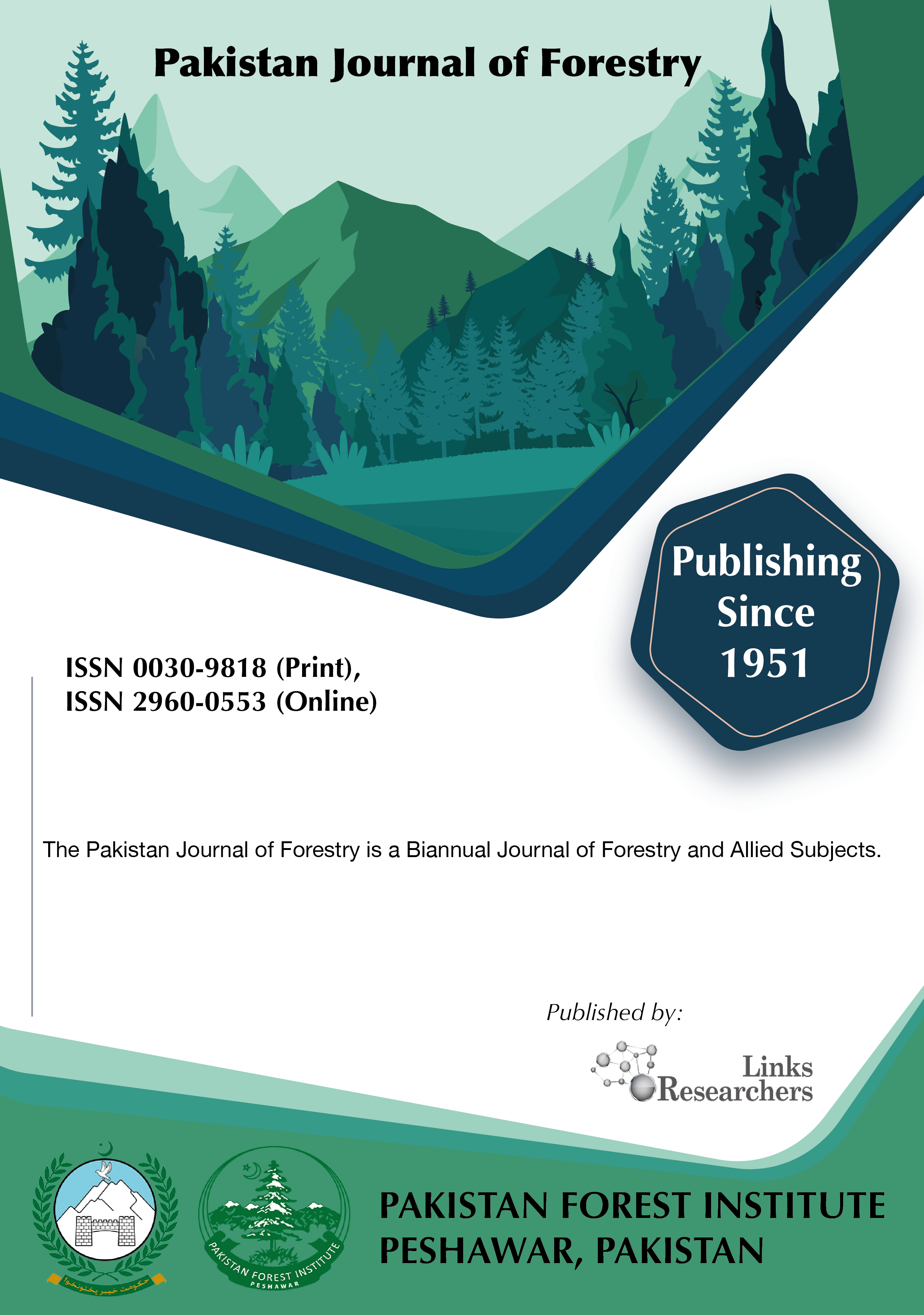Decoding the Nutritional Mystique: A Comparative Analysis of Guava and Peach Varieties from Diverse Climatic Regions
Decoding the Nutritional Mystique: A Comparative Analysis of Guava and Peach Varieties from Diverse Climatic Regions
Mansoor Ali Khan*, Khalid Imran, Zahid Rauf, Tanvir Hussain, Muhammad Umair Khan and Sajid Ali
ABSTRACT
Climatic conditions and genetic modifications play an important role in determining the nutritional value of the fruit. Fresh guava fruit samples were collected from Kohat, Lahore (Punjab), Mardan, and Karak. Four varieties of fresh peach including one genetically modified from Peshawar and three conventional varieties were collected from Karak, Kohat and Nowshera. Different conventional (seasoning and titrometric) and spectrophotometric methods were used for sample analysis. Results from the Guava (Psidium guajava) revealed that moisture contents (80.16%), protein (2.52%), fibers (2.22%), phosphorus (1.47%), iron (80.20PPm), Vit-C (1.36%), total phenol contents (180.00mg/100g), calcium (11.00mg/100g), magnesium (16.50mg/100g), manganese (0.12mg/100g) and potassium (373.20mg/100g) were maximum in the famous Kohat variety of guava. Alkaloids (0.60%), pectin (0.10%) lipids (2%), and zinc (0.34mg/100g) were maximum in Lahore (Punjab) variety, while ash, acidity carbohydrates and copper were found in greater amount in Karak and Mardan varieties of guava respectively. Additionally, the G.M samples of peach (Prunus persica), when compared with the conventional varieties showed high moisture contents (81.20%), protein (1.26%), fibers (1.48%), phosphorous (1.86%), iron (76.50 PPm), calcium (2.00mg/100g), magnesium (7.12mg/100g) and manganese (0.16mg/100g). However, in pectin (0.18%), lipids (0.32%), acidity (0.62%) carbohydrate contents (16.04%), and total phenol contents (22.25mg/100g), the Karak variety of peach were ahead of the other. Besides this, alkaloids (1.00%), sodium (0.09mg/100g), ash (4.20%), and Vit-C (7.23mg/100g) were found greater in Kohat and Nowshera varieties of peach, respectively. In a nutshell, the famous Kohat region guava variety is more beneficial and should be preferred over other conventional varieties. Additionally, genetically modified Peach use is also recommended for good health after the studied data analysis.
To share on other social networks, click on any share button. What are these?




